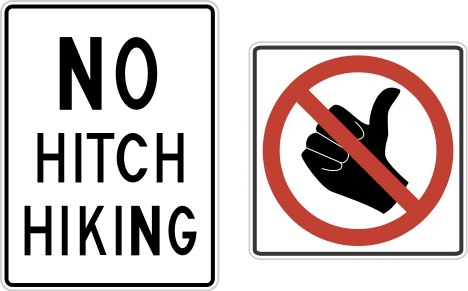Hitchhiking has developed a bad reputation, bringing to mind greasy, smelly hippies or murderous rapists looking to steal your car and harm your person.
I don’t believe these fears are grounded and I maintain an indiscriminate policy on picking up hitchers.

I don’t have altruistic motives. I pick them up because sometimes they give me gas money; sometimes they drive for a few hours while I nap. Mostly though, I pick them up because they are usually an outrageous group of people I would not normally interact with.
My last hitchhiker, Steve, was extraordinary.
Steve’s parents abandoned him when he was 13. After living in Ontario group homes for a few years, his roommate burned down the house they were in and Steve was blacklisted as a result. He spent the next year living in a park with some friends with whom he formed a heavy metal band.
Eventually, Steve saved up some cash from working at McDonald’s to get a place with some other people who promptly robbed him. Next, his best friend went to jail for a year, and on day one after getting outside, the friend died in his sleep on Steve’s couch.
With nothing tying him down to that town anymore, he started hitching across Canada.
That story took four hours, during which I was riveted, and he said none of it with a trace of anger or despair. He was boundlessly excited about seeing the ocean for the first time and was bouncing out of his seat when we drove across the Port Mann Bridge. Where in life would you ever hear a story like that with such joy?
Which brings me to my point: we gain much from opportunities explored and “risks” taken, often unintentionally. My selfish motives don’t change the fact that I engage with and aid these people and they, at the very least, give me a good story to tell.
By closing off and clamouring for the safest, surest, and most sanitized life possible, we miss out on more than we realize.
More and more, we close up because the risks are “too high.” Can’t let the kids play in the park, might get hurt. Can’t drink that unpasteurized milk, might get sick. Can’t talk to that stranger, might get embarrassed.
We may be cutting risk, but we’re also cutting out joy, growth, and humanity.
So the next time life presents you with a scary, messy way to engage with it, don’t ask, “What’s the risk?” Try asking, “What’s the reward?”
